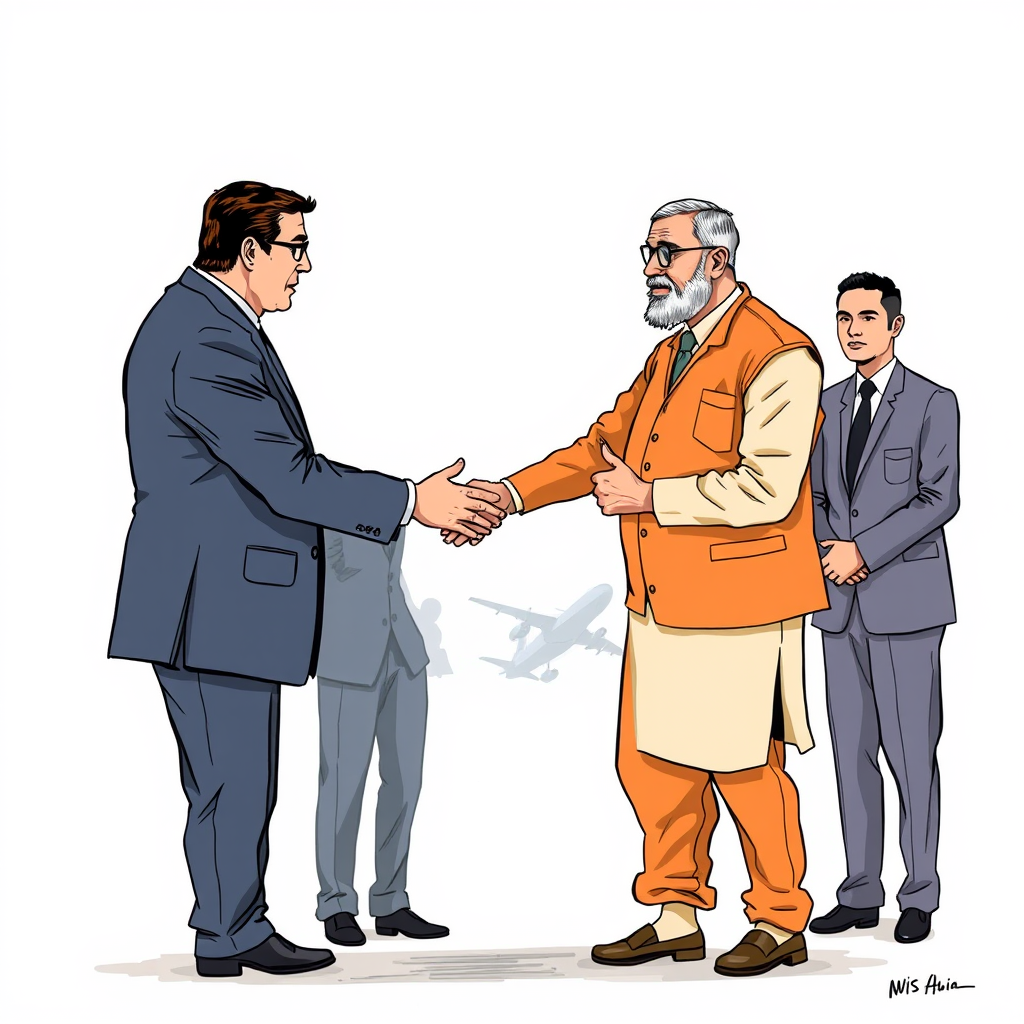Mumbai Attacks Suspect Extradited: Images Emerge

Tahawwur Rana, accused of playing a key role in the 2008 Mumbai terror attacks, is now in Indian custody following a protracted extradition battle. Images released by the US Justice Department depict the handover of Rana to Indian authorities on April 9th, concluding a legal process spanning years and marked by last-minute appeals.
Rana, who operated an immigration business in Chicago, is alleged to have facilitated the travel of David Coleman Headley – also known as Daood Gilani – to India using fraudulent documents. Headley, trained by the Pakistan-based terrorist group Lashkar-e-Taiba (LeT), conducted reconnaissance for the attacks that left over 160 people dead. While not directly involved in the shootings, Rana is accused of providing crucial logistical support.
Following the attacks, intercepted communications allegedly revealed Rana’s sympathetic views towards the perpetrators, even suggesting they deserved Pakistan’s highest military honor. He was initially arrested in 2009 for involvement in a separate LeT plot targeting a Danish newspaper, and subsequently convicted in 2013 of conspiring to support the terrorist group, receiving a 14-year sentence. Headley, in exchange for cooperation, pleaded guilty to 12 terrorism charges and received a 35-year sentence.
India formally requested Rana’s extradition in 2020. However, the process was repeatedly delayed by legal challenges citing Rana’s deteriorating health. He argued that extradition would be a death sentence given his multiple severe medical conditions, including heart disease, kidney disease, suspected cancer, Parkinson’s, and asthma. These appeals, including a final plea to the US Supreme Court, were ultimately unsuccessful.
Rana arrived in India on April 10th and is currently in the custody of the National Investigation Agency (NIA) for 18 days.
The successful extradition marks a significant development in the ongoing pursuit of justice for the victims of the Mumbai attacks. While the legal battles highlighted concerns regarding Rana’s health, the handover underscores international cooperation in combating terrorism and holding individuals accountable for their alleged roles in such devastating events. The case serves as a reminder of the complex logistical networks that enable terrorist operations and the importance of sustained efforts to disrupt them. It remains to be seen what further evidence will emerge during the NIA’s investigation and what impact this case will have on broader counter-terrorism efforts.